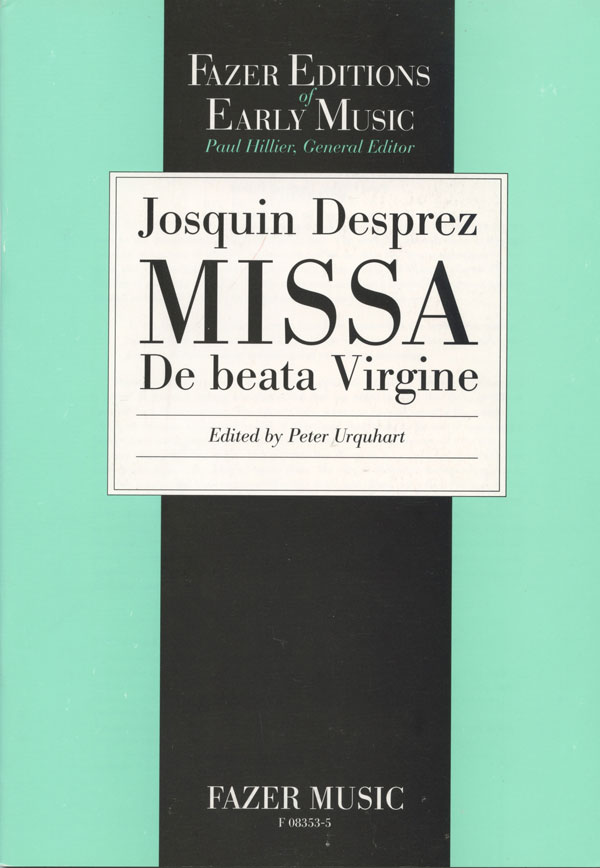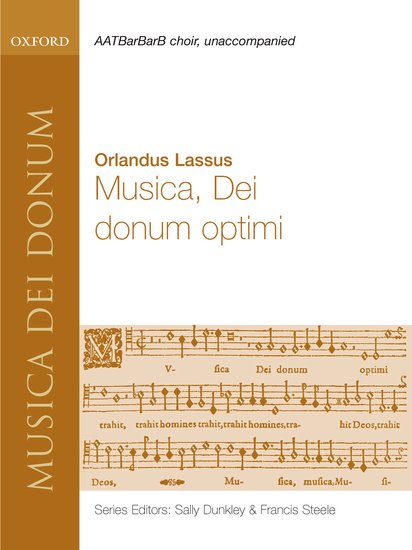In Celebration of the Human Voice - The Essential Musical Instrument
Home | Doo Wop | Barbershop | World | Contemporary | Christian | Vocal Jazz | Choral | Christmas | Instructional | Arrangements
Classical | Opera | Musicals | Personality | Young Singers | Disney | Videos | Songs | The Artists

Choral Arrangements from Belgium

| Traditional and modern Belgian choral and folksongs arranged for harmony voices. |
Songbooks, Arrangements and/or Media
Displaying 1-2 of 2 items.
Josquin Desprez : Missa De beata Missa de Beata Virgine is a musical setting of the Ordinary of the Mass, by Renaissance composer Josquin des Prez. A late work, probably composed or assembled around 1510, it was the most popular of his masses in the 16th century. The Missa de Beata Virgine is unusual among Josquin's masses in that the first two movements are for four voices, and the last three for five, with the fifth voice derived canonically. Like most musical settings of the mass Ordinary, it is in five sections, or movements. It uses different plainsong chants for each movement, and is a paraphrase mass, one in which the original chants are elaborated, broken up, passed between voices, or sung in different voices simultaneously. The movements differ in their treatment of the source plainchant. The Kyrie has the chant in all voices, imitatively and paraphrased; the Gloria treats the chant as a cantus firmus, migrating it from voice to voice. Tonally, both movements end on G, and most of their cadences are on G or D. The Credo, the first movement for five voices, ends with a surprising Phrygian cadence on E, and uses canonic techniques more prominently than in the preceding movements. Songlist: Missa De beata, Kyrie 1, Christe, Kyrie 2, Et in terra, Qui tollis, Cum Sancto, Credo sections, Sanctus, Pleni sunt caeli, Hosanna, Benedictus, Agnus Dei 1, Agnus Dei 2, Agnus Dei 3 Orlando Lassus : Musica, Dei donum optimi The setting was originally published in the year of Lassus' death (1594) and comes from his mature voice. Although it is economical in expression, it is rich and sonorous in sound and brought alive by the six-part counterpoint. It truly brings the text 'Music is a gift from God' to life. |
Displaying 1-1 of 1 items.
The nonsense text exists merely to give form to the music and is meaningless. In Pseudo-Yoik the composer takes a humorous look at the stereotype of Lapland folk music.
Composer: Jaakko Mantyjarvi | Country: Belgium
Select a Category |
Want to Sing? - Find a Chorus Near You
List of Choruses by State | List of Choruses by City



